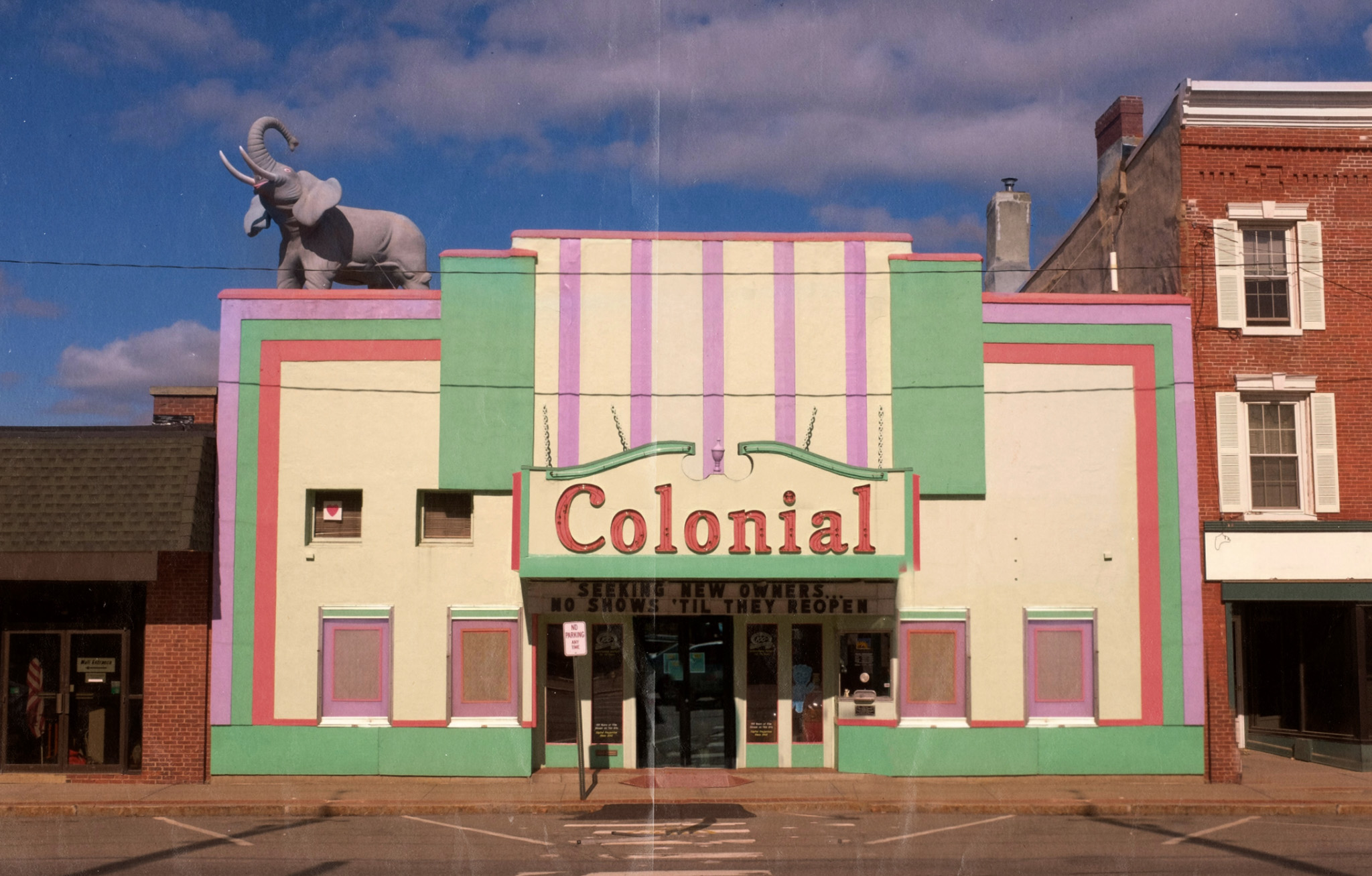
When you think about it, back then, movie theaters were really the first place that parents would allow their kids to go on their own. Especially in smaller towns—other than church and school, this was it.
What is your memory of the Colonial Theatre before buying it in ’95?
I’ve always been going to the movies. I came to Belfast in the winter of ’79 and opened a bar where the Parent Gallery is. If it was dead, I would say to the waitress, “I’m going to run over and watch a movie.” At that time, there was only one theater and the phone was right by the door. I would tell her, “If it gets busy, just call me and I’ll sit in the back and I’ll hear the phone ring.”
How did you and Therese come to take it over?
At that point I was already an entrepreneur. I had a window cleaning business at the time—this was when the bank MBNA came to Belfast, which was a big, big deal—and they hired my company, so I had a successful thing going with them. I had opened a bar. I had gone to Morocco and started an import business. I opened a gift shop. I was in the middle of developing a tool company, which I still have. So I was pretty good at figuring out how to do something.
Therese went to school for design, so she had all of the artistic sensibilities. What had happened was she had a huge job for the Camden Opera House, where they actually had to stage the entire room and then paint the ceiling. It was a huge project and she had all this work, and then for, like, two months, nothing. Couldn’t find anything. That’s what was happening when I saw the ad and said to her, “Hey, the Colonial Theatre’s for sale. Why don’t we buy it?” That was on a Wednesday. By Friday we had put in an offer.
I’ve always been going to the movies. I came to Belfast in the winter of ’79 and opened a bar where the Parent Gallery is. If it was dead, I would say to the waitress, “I’m going to run over and watch a movie.” At that time, there was only one theater and the phone was right by the door. I would tell her, “If it gets busy, just call me and I’ll sit in the back and I’ll hear the phone ring.”
How did you and Therese come to take it over?
At that point I was already an entrepreneur. I had a window cleaning business at the time—this was when the bank MBNA came to Belfast, which was a big, big deal—and they hired my company, so I had a successful thing going with them. I had opened a bar. I had gone to Morocco and started an import business. I opened a gift shop. I was in the middle of developing a tool company, which I still have. So I was pretty good at figuring out how to do something.
Therese went to school for design, so she had all of the artistic sensibilities. What had happened was she had a huge job for the Camden Opera House, where they actually had to stage the entire room and then paint the ceiling. It was a huge project and she had all this work, and then for, like, two months, nothing. Couldn’t find anything. That’s what was happening when I saw the ad and said to her, “Hey, the Colonial Theatre’s for sale. Why don’t we buy it?” That was on a Wednesday. By Friday we had put in an offer.
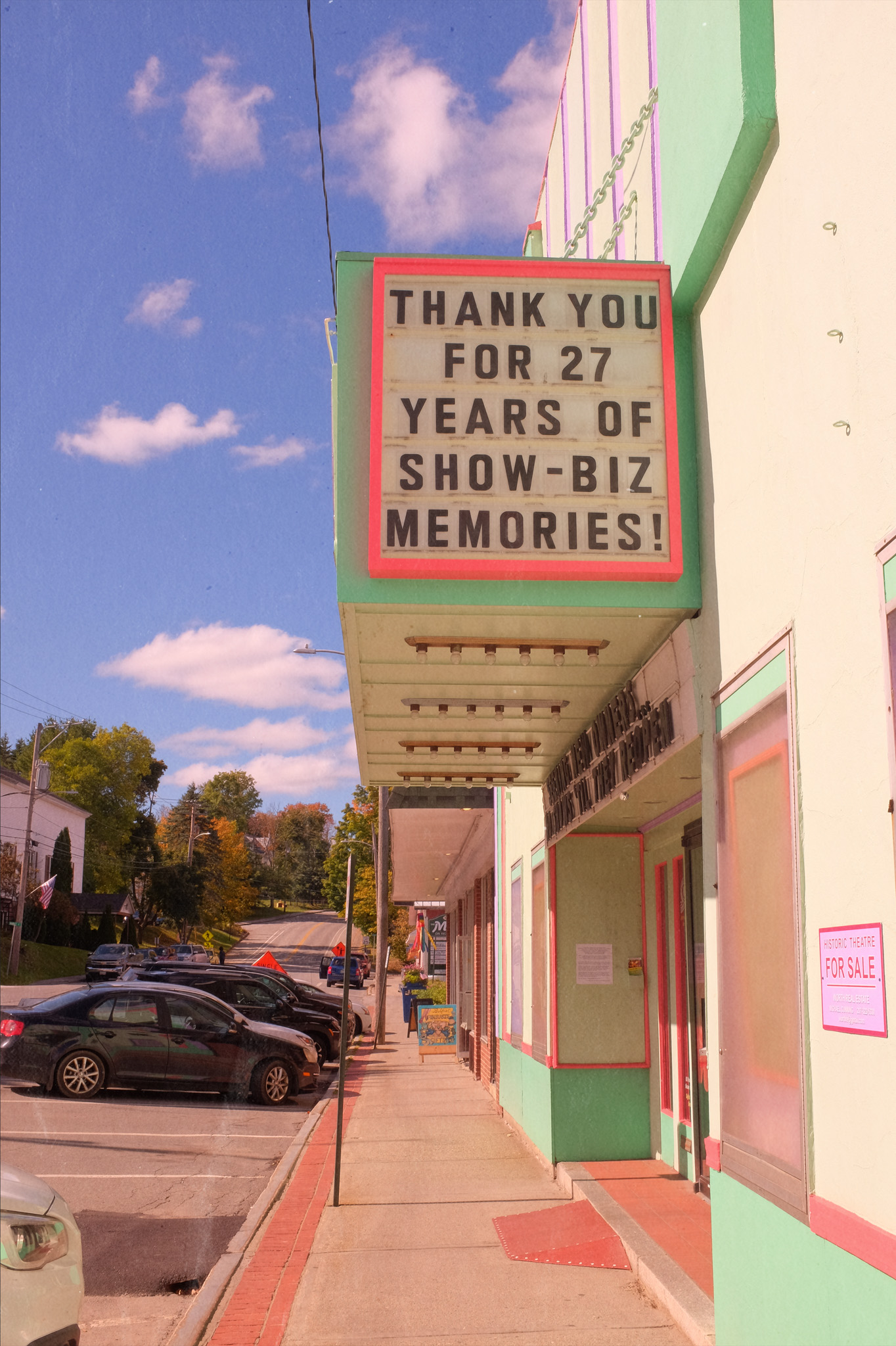
Was there any competition?
There were three or four other groups of people, some of them very well off. I called my accountant and said, “Hey I’m thinking of buying the movie theater. You got any advice for me?” And she goes, “Well, I can’t really talk about it. I’m part of a group that’s trying to buy it.” I knew who the group was—very well off people. We were doing OK, but these were real businesspeople. We were faux businesspeople, so to speak. So on that Friday they got four offers.
Who were the owners at that time?
The people who owned it were the Kurson family. They had owned movie theaters all over New England, and by this time they were all old. Now, I was, like, 45, but they were in their 80s. Everybody was hanging on by their fingernails, and this was their last theater. It was a dump. It was rundown, it was dirty. The roof leaked. They finally said “It’s time to go, we need to get this over with.” So anyways, they get four offers on a Friday. They call us up, and say “Here’s what we’re doing. We’re giving you all back your offers. Monday morning by 10:00 give us your best offer.” And what I said to Therese was, “Hon, we’re going to be in this for a long time. It doesn’t matter what we pay for it, to some extent. Do you want to do this? Do you want to run a movie theater?” And the answer was, “Yeah, we really want to run a movie theater.” So we put in our offer on Monday and we got it.
It must have been a little intimidating—knowing where to begin.
People would say, “What are you going to do first?” Well, I’m going to find out where they get the movies.
In this business, you talk directly to every film company. If you want a Disney movie, you talk to Disney, or your booker does it. If I want to play Avatar, I call up Disney and on a phone call I say, “I’ll take it.” I’ll pay you, you’ll send it to me. We’re good. It’s all verbal. There’s no contract. You don’t sign anything for Avatar. Try that with getting your carpets cleaned.
So there was no research, we just had to figure it out. Later, I started a website for theater owners or people who wanted to be theater owners, and for a long time it was very popular.
There were three or four other groups of people, some of them very well off. I called my accountant and said, “Hey I’m thinking of buying the movie theater. You got any advice for me?” And she goes, “Well, I can’t really talk about it. I’m part of a group that’s trying to buy it.” I knew who the group was—very well off people. We were doing OK, but these were real businesspeople. We were faux businesspeople, so to speak. So on that Friday they got four offers.
Who were the owners at that time?
The people who owned it were the Kurson family. They had owned movie theaters all over New England, and by this time they were all old. Now, I was, like, 45, but they were in their 80s. Everybody was hanging on by their fingernails, and this was their last theater. It was a dump. It was rundown, it was dirty. The roof leaked. They finally said “It’s time to go, we need to get this over with.” So anyways, they get four offers on a Friday. They call us up, and say “Here’s what we’re doing. We’re giving you all back your offers. Monday morning by 10:00 give us your best offer.” And what I said to Therese was, “Hon, we’re going to be in this for a long time. It doesn’t matter what we pay for it, to some extent. Do you want to do this? Do you want to run a movie theater?” And the answer was, “Yeah, we really want to run a movie theater.” So we put in our offer on Monday and we got it.
It must have been a little intimidating—knowing where to begin.
People would say, “What are you going to do first?” Well, I’m going to find out where they get the movies.
In this business, you talk directly to every film company. If you want a Disney movie, you talk to Disney, or your booker does it. If I want to play Avatar, I call up Disney and on a phone call I say, “I’ll take it.” I’ll pay you, you’ll send it to me. We’re good. It’s all verbal. There’s no contract. You don’t sign anything for Avatar. Try that with getting your carpets cleaned.
So there was no research, we just had to figure it out. Later, I started a website for theater owners or people who wanted to be theater owners, and for a long time it was very popular.
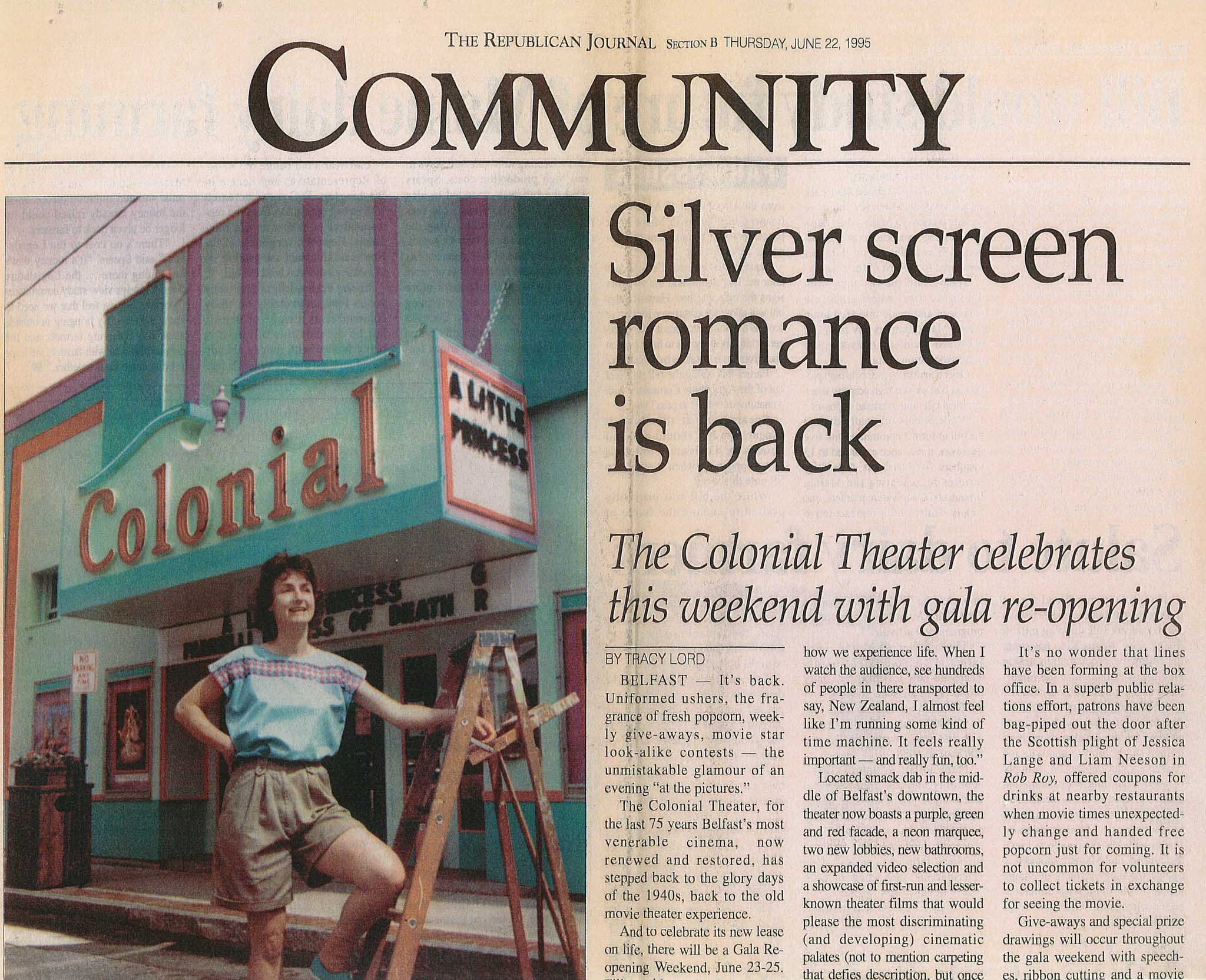
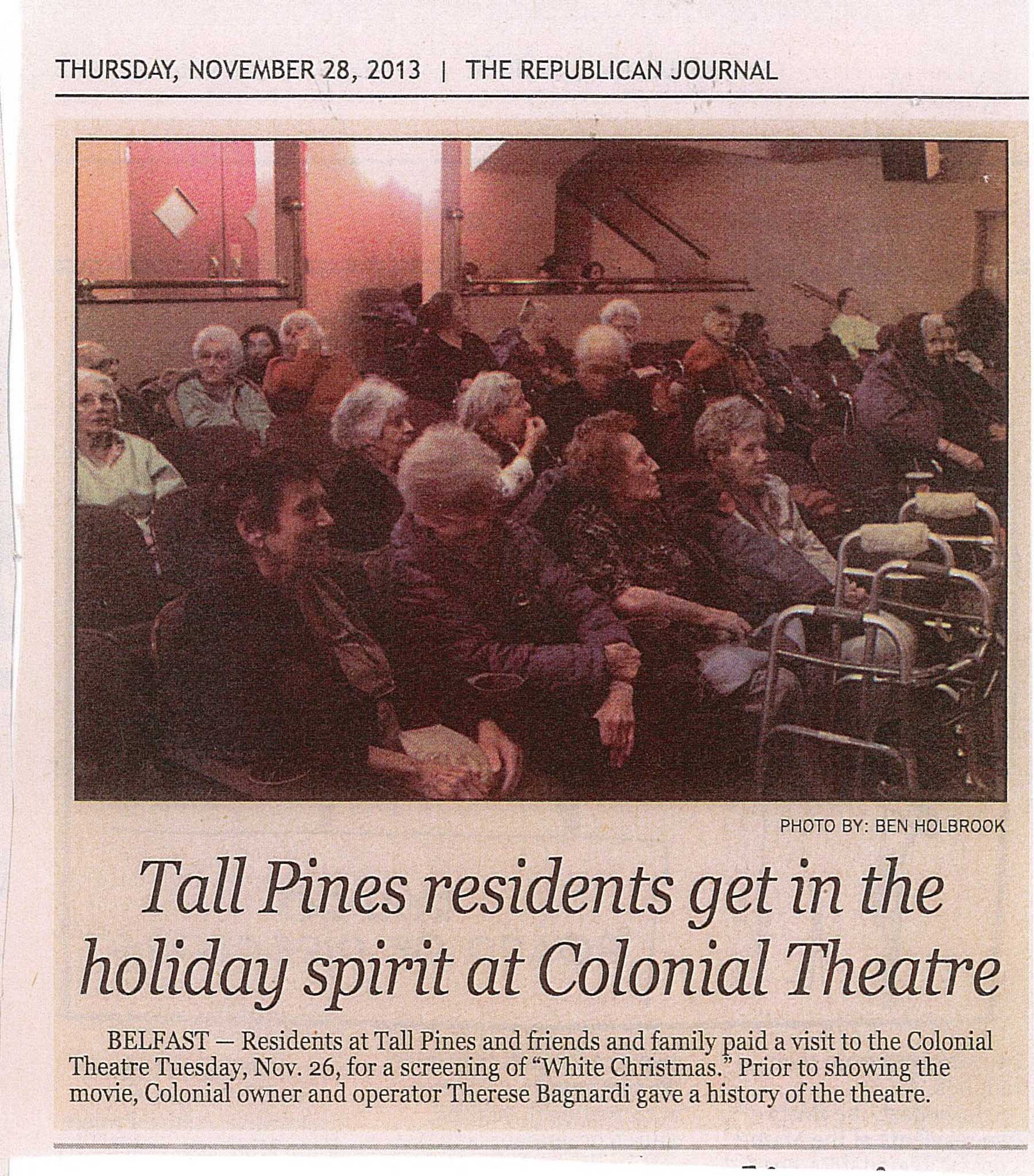
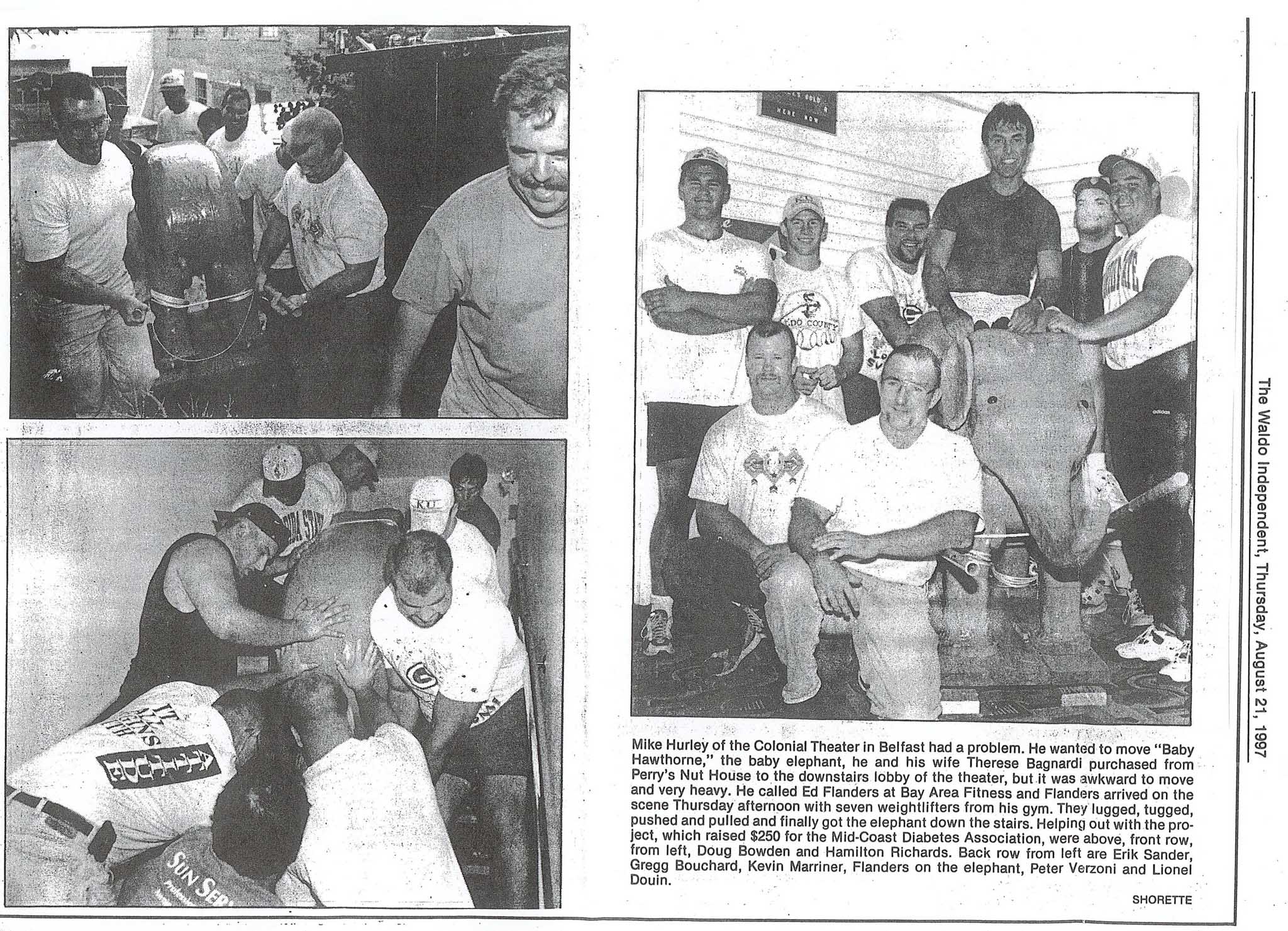
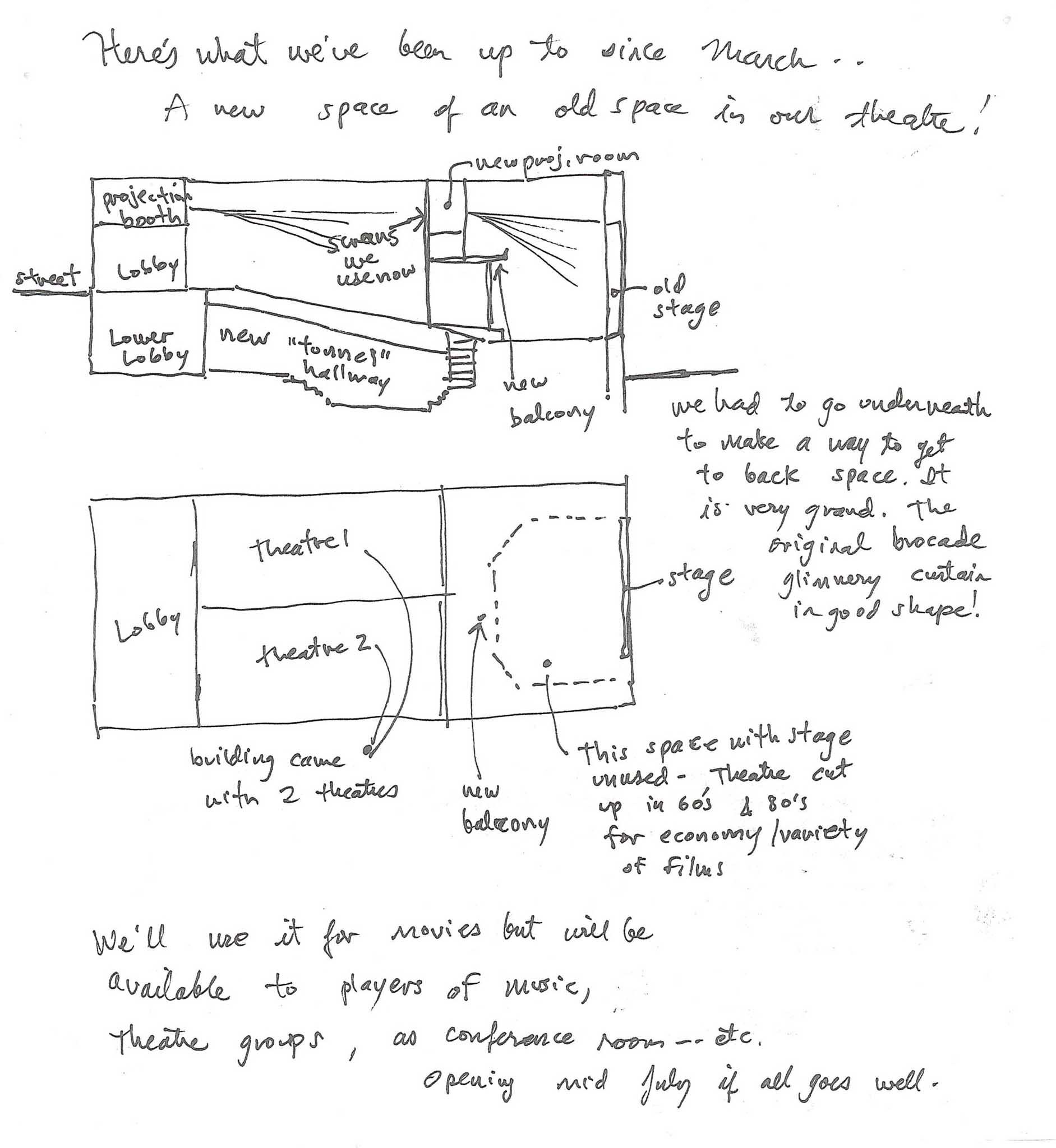
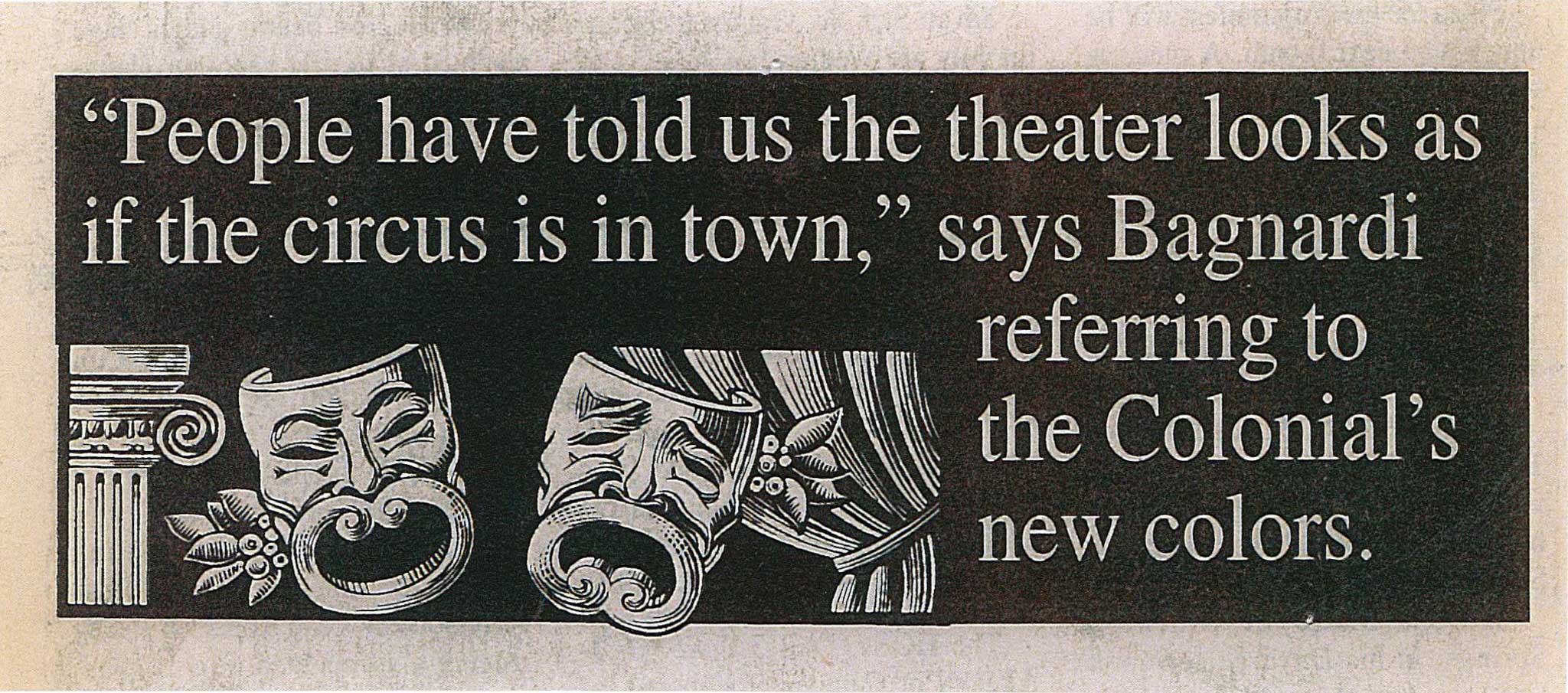
Do you still run that site?
I sold it.
It’s a great idea.
Well, you know what inspired me? I heard there was a website for Burger King employees and I thought, “Why isn’t there a goddamn one for movie theater owners?” It was very successful for a while, but I never kept up with it. I started too many businesses.
You’re clearly the entrepreneur, but I imagine it was amazing for Therese to have this blank canvas, creatively.
She loved it. We loved it. Finding the carpet, the lighting. It used to be that the outside of the theater was just dog shit brown, with a lighter shade of dog shit brown for accents. So coming up with, “What are we going to do here with colors and design and all that?” Therese just jumped in naturally.
She wasn’t as great with people. I would get these passionate emails—“I came to the theater and this lady was so rude to me.” I go, “She’s my wife. She owns the movie theater and she has no boss and she’s a wild animal. She is beyond my control. She does what she does. I’m really sorry. Here’s two free tickets and you can show up tomorrow and you’ll have the best experience.”
I was thinking about how I’ve used movie theaters in my life, because their role and importance has certainly changed, and changed with the times as well. As a kid, in middle school and in high school, the movie theater was the epicenter of my social life, and, maybe even more so, my love life.
When we started, Friday nights were intense. There’d be a hundred kids, and they didn’t care what the movie was. When you think about it, back then, movie theaters were really the first place that parents would allow their kids to go on their own. Especially in smaller towns—other than church and school, this was it. We were a safe place; we had a payphone across the street. Generations of people had their first dates.
I sold it.
It’s a great idea.
Well, you know what inspired me? I heard there was a website for Burger King employees and I thought, “Why isn’t there a goddamn one for movie theater owners?” It was very successful for a while, but I never kept up with it. I started too many businesses.
You’re clearly the entrepreneur, but I imagine it was amazing for Therese to have this blank canvas, creatively.
She loved it. We loved it. Finding the carpet, the lighting. It used to be that the outside of the theater was just dog shit brown, with a lighter shade of dog shit brown for accents. So coming up with, “What are we going to do here with colors and design and all that?” Therese just jumped in naturally.
She wasn’t as great with people. I would get these passionate emails—“I came to the theater and this lady was so rude to me.” I go, “She’s my wife. She owns the movie theater and she has no boss and she’s a wild animal. She is beyond my control. She does what she does. I’m really sorry. Here’s two free tickets and you can show up tomorrow and you’ll have the best experience.”
I was thinking about how I’ve used movie theaters in my life, because their role and importance has certainly changed, and changed with the times as well. As a kid, in middle school and in high school, the movie theater was the epicenter of my social life, and, maybe even more so, my love life.
When we started, Friday nights were intense. There’d be a hundred kids, and they didn’t care what the movie was. When you think about it, back then, movie theaters were really the first place that parents would allow their kids to go on their own. Especially in smaller towns—other than church and school, this was it. We were a safe place; we had a payphone across the street. Generations of people had their first dates.
